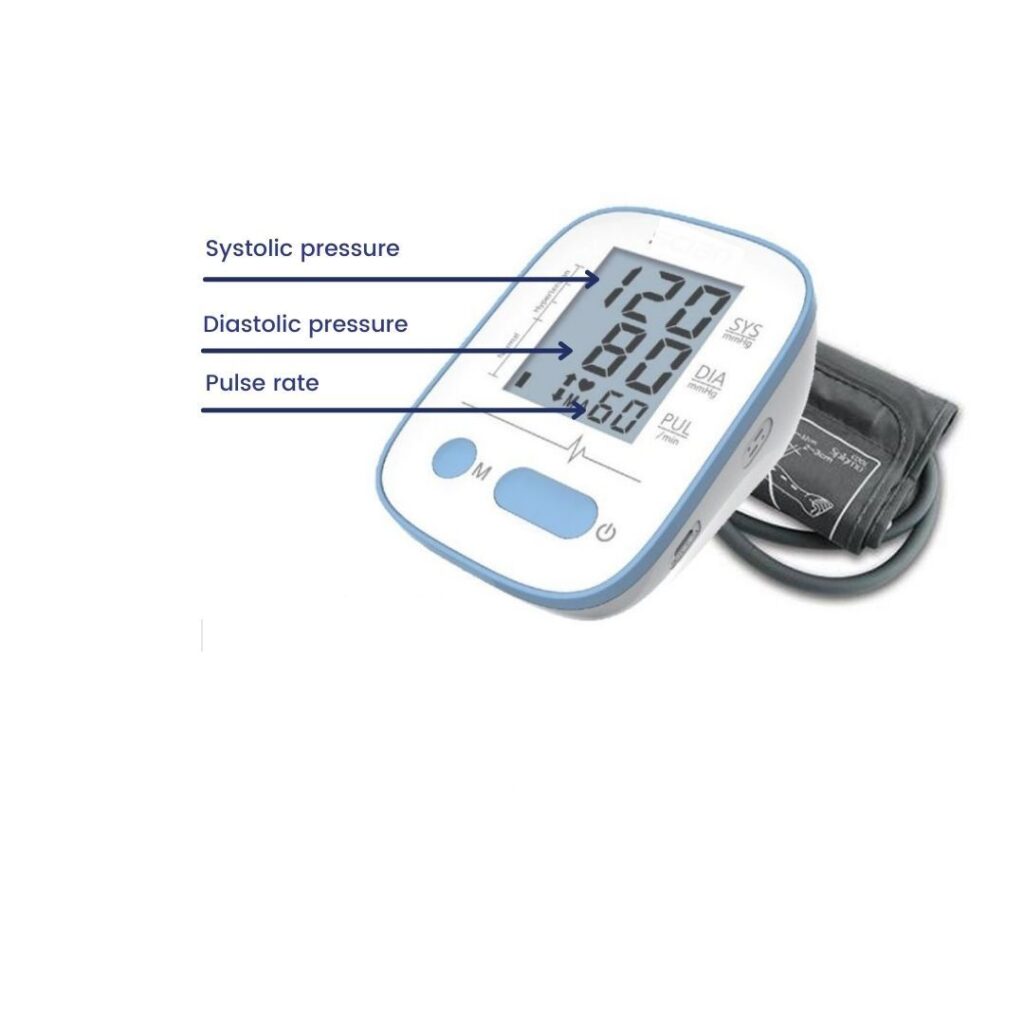
Blood pressure appears to be a simple word for everyone, but it is not simple in today’s world. A small young child is suffering from high blood pressure. But do you think they seriously know what Blood Pressure is?
No, they don’t even know at all. What is Blood Pressure? What are the symptoms of Blood Pressure? So I believe this blog will help users and many people understand what blood pressure is:
An essential indicator of cardiovascular health is blood pressure. It measures the force that blood exerts on the walls of your arteries when your heart pumps it throughout your body. Maintaining a healthy blood pressure is critical for avoiding heart disease, stroke, and other significant health issues.
What is Blood Pressure?
When blood flows through your body, it exerts pressure on the walls of your arteries. This is known as blood pressure. is a crucial indicator of heart health. Two figures are used to measure it: the first, called the systolic, indicates the pressure during a heartbeat, and the second, called the diastolic, indicates the pressure during a heartbeat’s rest period.
Sustaining a normal blood pressure level is critical for heart health in general and guards against major conditions like heart disease and stroke.
The two figures used to measure blood pressure are the diastolic and systolic values:
Systolic Pressure: The first (or top) number represents the pressure in your arteries when your heart beats.
Diastolic Pressure: This is the second (or lowest) number, and it represents the pressure in your arteries when your heart rests between beats.
For example, a reading of 120/80 mmHg (millimeters of mercury) indicates that the systolic pressure is 120 and the diastolic pressure is 80.

What is Normal Blood Pressure?
According to the American Heart Association, normal blood pressure is defined as follows:
- Normal: Less than 120 mmHg at the systolic and 80 mmHg at the diastolic points (120/80 mmHg).
What is High Blood Pressure?
When the force of the blood against the artery walls is too great, it is known as high blood pressure, or hypertension. Heart disease and stroke are just two of the major health issues it may cause. Hypertension can occur in the following phases:

Elevated: Diastolic pressure is less than 80 mmHg and Systolic pressure is 120–129 mmHg.
Stage 1 Hypertension: Systolic between 130-139 mmHg or diastolic between 80-89 mmHg
Stage 2 Hypertension: Systolic at least 140 mmHg or diastolic at least 90 mmHg
Hypertensive Crisis: Systolic over 180 mmHg and/or diastolic over 120 mmHg (requires immediate medical attention)
Causes
There are several things that might lead to hypertension, including:
- Genetics: Family history of hypertension
- Diet: High salt intake, low potassium intake, excessive alcohol consumption
- Lifestyle: Lack of physical activity, obesity, smoking
- Stress: Chronic stress can contribute to hypertension
- Medical Conditions: Kidney disease, diabetes, sleep apnea
Symptoms
High blood pressure is known as the “silent killer” since it usually causes no symptoms.
- Headaches
- Shortness of breath
- Nosebleeds
- Flushing
- Dizziness
These symptoms usually occur when blood pressure has reached a dangerously high level.
Tips for Maintaining Healthy Blood Pressure
Reducing the risk of heart disease and stroke and maintaining a healthy blood pressure are essential for cardiovascular health in general. Here are some thorough pointers to assist you in controlling and preserving appropriate blood pressure levels:
-
Regularly check your blood pressure:
Check your blood pressure frequently to become familiar with your numbers. This allows you to monitor changes and adjust properly. Aim for readings of no more than 120/80 mm Hg. 130/80 mm Hg or higher is considered hypertension, or high blood pressure.
2. Take Up a Healthful Diet:
Limit Your Sodium Intake: Too much salt and processed meals high in sodium can cause blood pressure to rise.
Consume More Fruits and Vegetables: Their high potassium content helps keep the body’s salt levels in check.
Select Whole Grains: To enhance fiber consumption and promote heart health, choose whole grains rather than processed grains.
Moderate Intake of Alcohol: If you consume alcohol, do so sparingly. Consuming too much alcohol might cause blood pressure to rise.
3. Sustain a Healthy Weight:
Excess weight and obesity increase the risk of hypertension. Eat a balanced diet and engage in regular exercise to stay within a healthy weight range.
4. Take Part in Regular Exercise:
Every week, try to get in at least 150 minutes of moderate-intensity aerobic activity or 75 minutes of intense activity.
5. Manage Stress:
High blood pressure may be a result of ongoing stress. Utilize methods of relaxation like yoga, meditation, and deep breathing.
Try taking up a hobby, hanging out with loved ones, or getting help from a professional if necessary as good stress management techniques.
6. Quit Smoking:
Smoking causes long-term damage to blood vessel walls and a transient increase in blood pressure. Giving up smoking enhances general health and lowers the chance of heart disease.
7. Get Sufficient Sleep:
Aim for 7-9 hours of quality sleep each night. Poor sleep can contribute to high blood pressure and other health problems.
8. Limit Caffeine Intake:
While moderate amounts of caffeine can temporarily raise blood pressure, excessive consumption can lead to sustained increases. Take care of how much caffeine you consume, particularly if you feel that you are sensitive to it.
If your doctor prescribes medication for hypertension, follow their instructions. Don’t alter or cease taking your medicine without first talking to them.
9. Frequent medical examinations:
Make appointments on a frequent basis to keep an eye on your blood pressure and general health with your healthcare professional. They are able to offer advice based on your particular requirements.
Conclusion
Maintaining heart health requires understanding blood pressure and being aware of your numbers. You can greatly lower your risk of hypertension and its related problems by leading a healthy lifestyle and routinely checking your blood pressure. If you have any concerns, discuss them with your healthcare provider so that a personalized plan for controlling your blood pressure may be developed.







